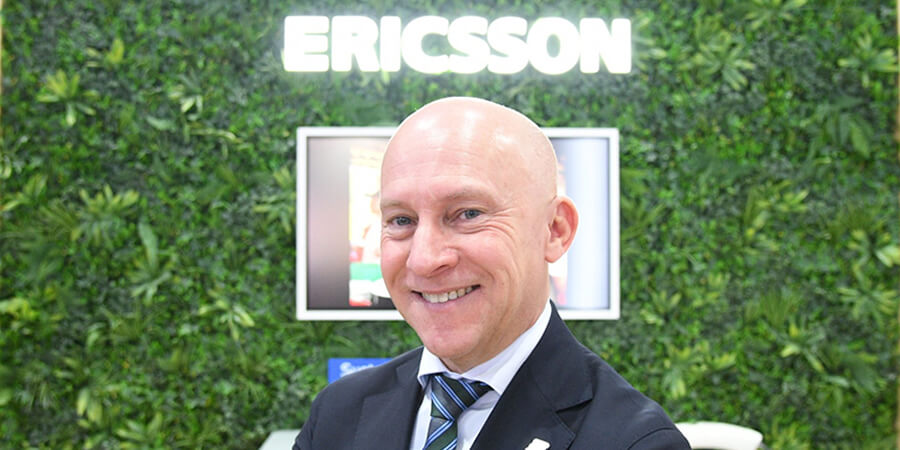From artificial intelligence (AI)-driven automation to 5G-powered augmented reality (AR) and virtual reality (VR) experiences, these advancements have the potential to revolutionize multiple sectors across Saudi Arabia, accelerating economic diversification and digitalization. To support this transformation, Ericsson is addressing local market needs through greater accountability and customer focus.
In an exclusive interview with Telecom Review during LEAP 2025, Patrick Johansson, President of Ericsson Middle East and Africa, elaborated on Ericsson’s commitment to Saudi Arabia’s digital transformation as a leading technology partner for local operators and wider ecosystem players.
Latest: Ericsson's Strong 2024 Finish Highlights Growth in the ‘Network’ and ‘Enterprise’ Market
Ericsson is showcasing innovative solutions at LEAP 2025. How do these innovations align with Saudi Arabia's digital transformation goals under Vision 2030?
Ericsson has been part of Saudi Arabia’s development since 1978, providing a strong foundation for collaboration. Vision 2030 sets ambitious goals, driving technological progress and economic transformation, and we are committed to being a key partner in this journey.
With our extensive experience, both regionally and globally, we bring expertise from past technological evolutions while integrating the latest advancements. Saudi Arabia already has one of the world’s most advanced network topologies, with the largest available spectrum, offering a solid foundation for consumer and enterprise services.
As a strategic technology partner for local operators and ecosystem players, we actively contribute to this transformation.
At LEAP 2025, we will be making key announcements that represent our role in turning Vision 2030 into reality, reinforcing our commitment to innovation and collaboration.
The establishment of Ericsson's new customer unit in Saudi Arabia forms part of Ericsson's larger regional transformation. How will this meet the needs of the local market while improving accountability and customer focus?
We are creating a single customer unit in Saudi Arabia to strengthen our local presence and maximize impact. This move allows us to enhance collaboration with operators and the broader ecosystem while leveraging our scale and expertise.
Ericsson already has a significant workforce in the Kingdom, and we place a strong emphasis on developing young Saudi talent. Through university graduate programs, we have reached nearly 60% local employment, and of our new hires, 52% are women, demonstrating our commitment to diversity and empowerment.
Aside from the customer unit, we have also established our regional headquarters in Riyadh, supporting the Middle East and Africa. This center enables us to build shared assets that drive business and industry growth across the region, reinforcing Saudi Arabia’s role as a technological hub under Vision 2030.
With AI-driven automation and 5G-powered AR/VR experiences on display, what will be the biggest impact of these technologies on different sectors in Saudi Arabia?
At LEAP 2025, we are showcasing real-world applications of AI, 5G, and other transformative technologies.
These innovations impact both consumer experiences and industrial applications.
On the consumer side, AI and 5G enable high-definition (HD) AR/VR experiences, enhancing entertainment, education, and communication. On the industrial side, these technologies revolutionize operations—whether it be through AI-powered predictive maintenance for AC units, automated inventory management, or remote servicing solutions.
AI-driven, intent-based networking further enhances efficiency by enabling rapid, automated service deployments for new businesses or services without requiring manual configuration. By using 5G as an innovation platform, Saudi businesses can unlock new revenue streams and drive economic growth.
Sustainability is a key focus area for the industry as well as an important topic at LEAP 2025. How are Ericsson's technologies contributing to Saudi Arabia’s sustainability efforts?
Ericsson’s sustainability targets are very much aligned with Vision 2030. While we aim for net-zero emissions by 2040, our immediate focus is on identifying actionable steps to reduce energy consumption and carbon footprints.
Our technology enhances power efficiency, reducing energy usage and carbon dioxide (CO2) emissions. In one recent project, replacing legacy infrastructure with our solutions resulted in a 40% improvement in energy efficiency.
Beyond technology, we prioritize responsible recycling and disposal. In collaboration with our customers, we ensure that old equipment is safely dismantled to prevent environmental harm. For example, in partnership with Mobily, we have recovered and sustainably processed over 400 metric tons of hardware from Saudi Arabia’s telecom infrastructure in the past year alone.
By integrating sustainability into our operations and partnerships, we actively contribute to a greener, more sustainable future for the Kingdom.
Johansson Highlights Ericsson's Century of Excellence: Shaping Next-Generation Networks










